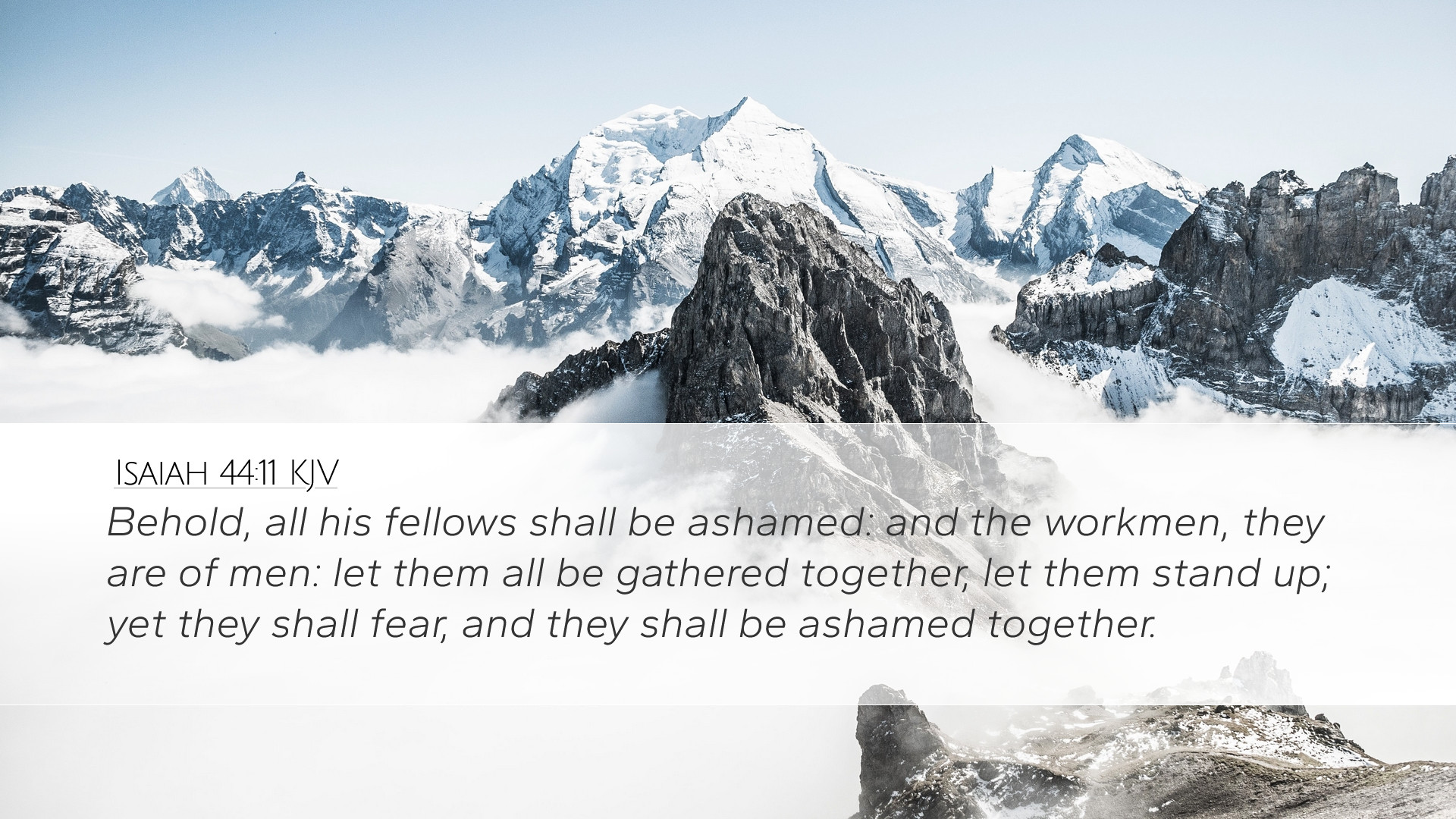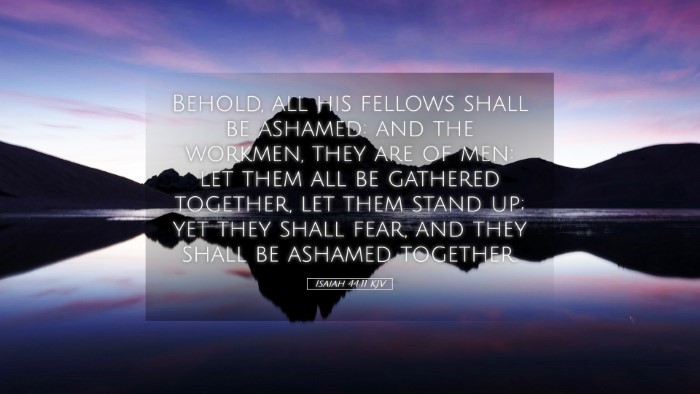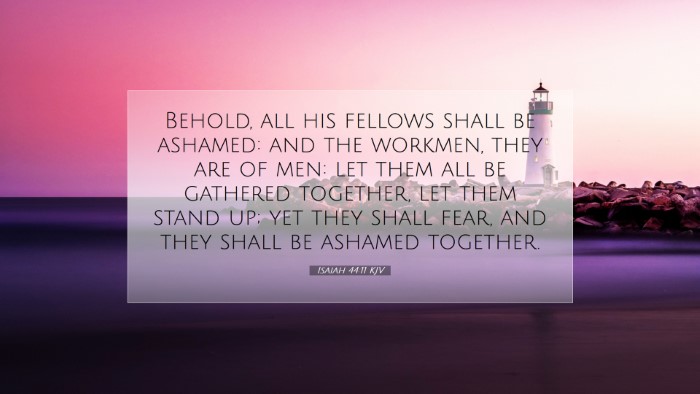Commentary on Isaiah 44:11
Verse: "Behold, all his fellows shall be ashamed: and the workmen, they are of men: let them all be gathered together, let them stand up; yet they shall fear, and they shall be ashamed together."
Overview
This verse is part of a larger oracle in Isaiah where the futility of idolatry is vividly depicted. The emphasis here is on the impotence of man-made idols and the inadequacy of those who create them. The verse serves as a contrast to the greatness and power of God, inviting a reflection on the nature of true worship versus idol worship.
Summary of Commentaries
Insights from Matthew Henry, Albert Barnes, and Adam Clarke provide a comprehensive understanding of the passage.
Matthew Henry's Commentary
Matthew Henry emphasizes the notion of shame associated with idolatry. He notes:
- Shame of Idolatry: The shame that will fall upon those who create and worship idols is underscored. Henry highlights that the futility of such endeavors will lead to a communal realization of their error.
- The Futility of Craftsmen: The craftsmen who shape these idols are mere men. They lack the divine authority or power and thus will face the inevitable disappointment of their creations.
- Collective Failure: The “fellows” signifies a collective group of idolaters who will be humiliated together, suggesting a corporate identity in their folly.
Albert Barnes' Commentary
Albert Barnes offers a more analytical perspective. His observations include:
- Gathering of Idolaters: Barnes remarks that the gathering of craftsmen to defend their idols portrays a desperate attempt to bolster their faith in these man-made gods.
- Fear and Shame: He points out that the ultimate conclusion of their efforts is not courage but fear—fear that will lead to shame as they realize the impotence of their idols.
- Divine Contrast: Barnes highlights the contrast between the living God and dead idols, stressing the importance of recognizing God's sovereignty in the face of human folly.
Adam Clarke's Commentary
Adam Clarke provides a theological reflection on the verse. His insights include:
- Contextual Understanding: Clarke points out that the context of this verse fits within a larger discourse on the foolishness of idol worship, which was prevalent among the nations surrounding Israel.
- Spiritual Warfare: He suggests that this verse speaks to the spiritual struggle between the worship of the true God and the empty rituals offered to idols.
- Assurance for Believers: Clarke finally reassures believers that despite the shame encountered by idol-makers, those who worship the true God will not be ashamed, thus providing spiritual encouragement.
Theological Implications
The implications of Isaiah 44:11 extend beyond its immediate context. Several theological insights emerge:
- Nature of Worship: This verse forces readers to examine the nature of their own worship. Are they investing in the idols of their own making or in the living God?
- Reality vs. Illusion: The passage reiterates the distinction between reality and illusion in faith practices—encouraging believers to ground their faith in divine truth rather than human tradition.
- Corporate Accountability: The verse illustrates corporate accountability in idolatry, reminding faith communities that collective pride in false worship leads to shared shame.
Practical Applications
For pastors, students, and theologians alike, the reflections on Isaiah 44:11 encourage several practical applications:
- Preaching Against Idolatry: Pastors are called to preach against the subtle forms of idolatry that can infiltrate contemporary worship practices.
- Personal Reflection: Individuals studying this text should engage in personal reflection regarding the “idols” within their lives—be they materialism, success, or other distractions from true worship.
- Community Engagement: The passage calls for communal engagement in accountability, encouraging groups to confront and dismantle collective idols.
Conclusion
Isaiah 44:11 serves as a powerful reminder of the consequences of idol worship and the potent contrast it presents against the backdrop of God’s eternal truth. Through the insights of commentaries from Matthew Henry, Albert Barnes, and Adam Clarke, we gain a richer understanding of this verse’s significance. It speaks not only to the ancient context of its authorship but resonates with believers today as they navigate the challenges of faith in a complex world.


